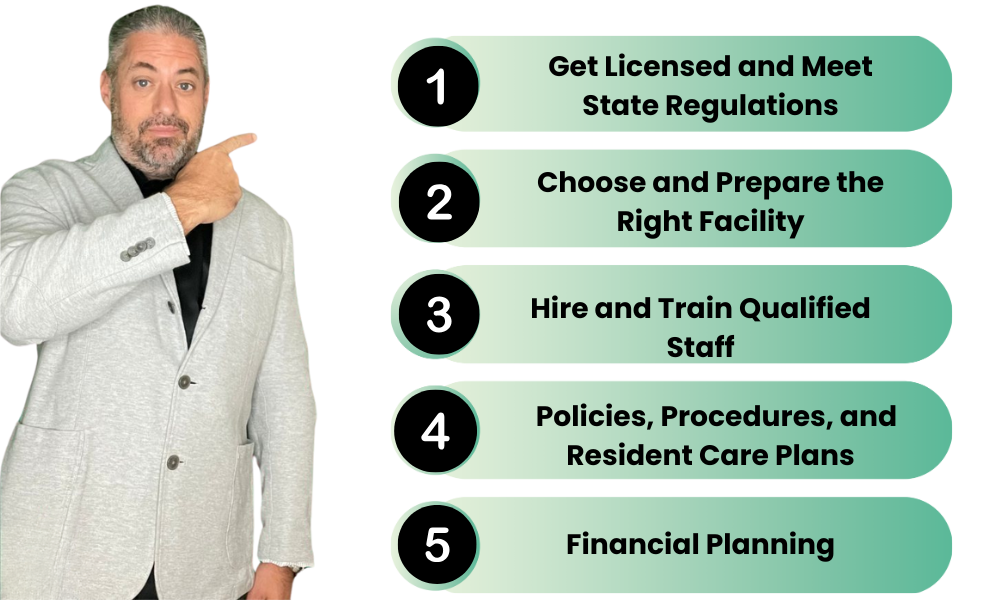Start Your Alaska Assisted Living Facility with Ease
We specialize in ALF licensing, compliance, Medicaid, and more.

Comprehensive Solutions to Start an Assisted Living Facility in Alaska

Want to Open an Assisted Living Facility in Alaska? We Can Help.
If you’re ready to open your own residential assisted living facility (RAL) in Alaska, you’re in the right place. Whether you’re just getting started or have already bought a home, we offer step-by-step support to help you get licensed and launch your business the right way.
Alaska ALF Services We Offer
Startup & Licensing
- ALF Core Training (State Approved)
- New Facility Licensing
- CHOW (Change of Ownership)
- Pre-Licensure Mock Survey
Compliance & Mentorship
- Customized CEMP Plan (Florida Compliant)
- Monthly Compliance Mentorship
- Inspection Prep & Support
- License Renewal Guidance
Medicaid & Billing
- Facility Level Medicaid Enrollment
- Resident LTC Medicaid Applications
- Monthly LTC Medicaid Billing
- Past-Due Balance Recovery
ALF Consultants Form Services Request
Alaska ALF Licensing Process

Schedule a Consultation

Submit State Application

Begin Operations & Medicaid Setup
Licensing Requirements for Assisted Living Facilities
Operating an RAL in Alaska mandates adherence to regulations set forth by the Alaska Department of Health’s Residential Licensing Unit. Key requirements include:
Licensing: Facilities must obtain a license as an Assisted Living Home, encompassing assisted living services.
Administrator Qualifications: Administrators are required to be at least 21 years old and meet specific training and experience criteria as outlined in 7 AAC 75.215 and 7 AAC 75.230.
Staff Training: Caregivers must complete a minimum of 8 hours of orientation and 6 hours of annual training in areas such as resident care, medication administration, infection control, and emergency preparedness.
Background Checks: All staff must undergo fingerprint-based criminal background checks conducted by the Alaska Department of Public Safety.
Facility Standards: Facilities must comply with safety and health standards, including appropriate living space per resident and emergency preparedness plans.
Resident Rights: Facilities are obligated to uphold residents’ rights, including privacy, autonomy, and the ability to file grievances without fear of retaliation.
